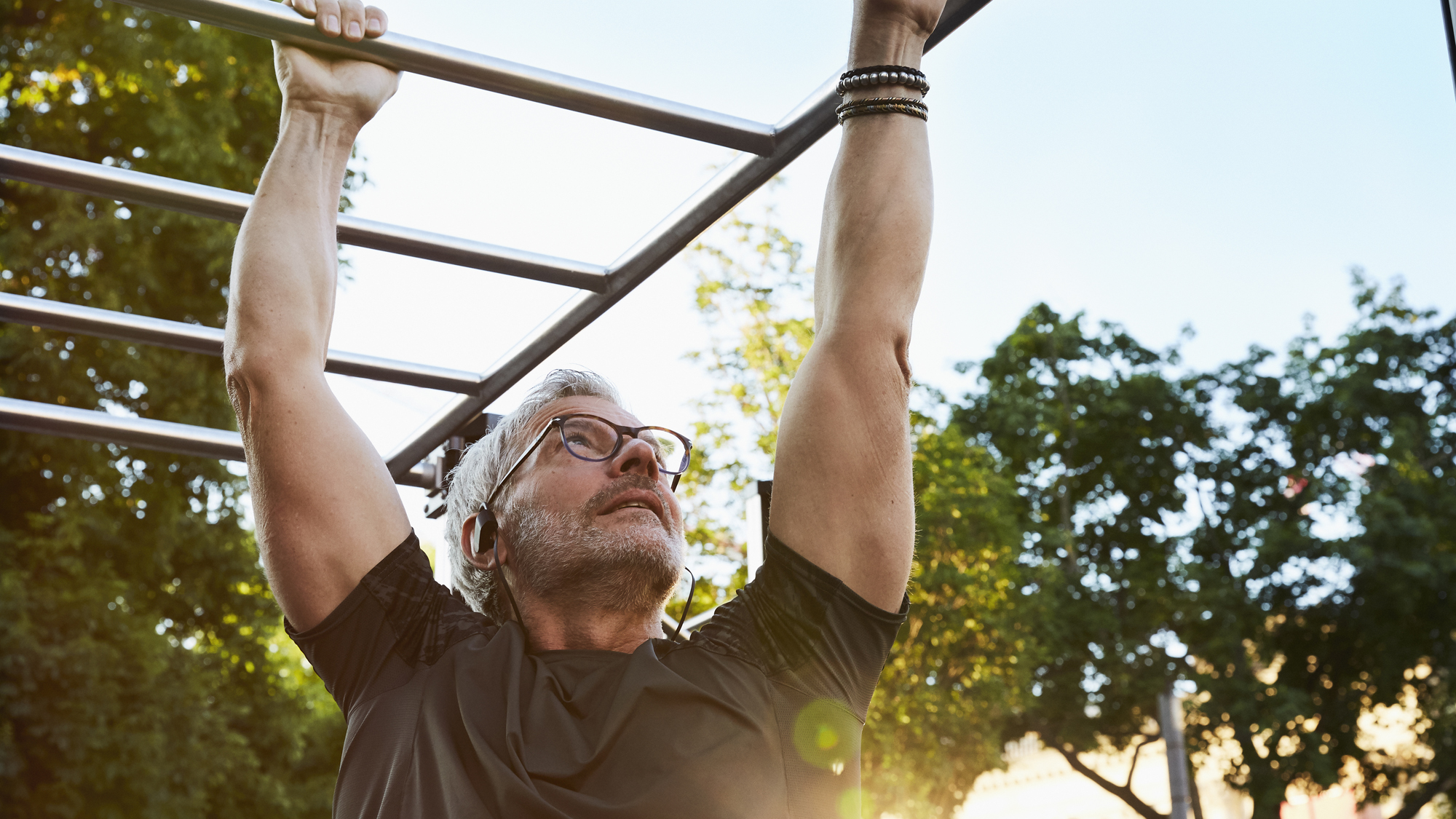Over 65? Use whey protein and resistance training to fight the effects of aging
The benefits of exercise are well-known, but researchers have uncovered a surprising benefit of regular protein intake


Start your week with achievable workout ideas, health tips and wellbeing advice in your inbox.
You are now subscribed
Your newsletter sign-up was successful
Our bodies change as we get older, which often means we have to adapt how we exercise and stay active. According to a recent study, the best way to keep in shape in our later years might be to build muscle and drink protein shakes.
Protein is an essential part of muscle development as it promotes repair and recovery. That's why many people use the best protein powders for weight loss along with exercise and dietary changes when looking to drop pounds.
Although protein is a crucial part of post-workout recovery for muscle building, a new study has found that it has another surprising benefit for staying active; improving your walking speed.
The researchers recruited 36 men over 65 for the trial and split them into four groups to tease out the effects of exercise and protein intake; exercise-only, protein-only, exercise and protein, and a control group.
Across the 12-week study period, the team asked the exercise-based recruits to take on a full-body workout twice a week. Similarly, the protein supplementation groups took two 25g servings of whey protein each day for the duration.
Unsurprisingly, the team found that resistance training increased muscle strength and promoted fat-free weight gain. Significantly, it also reduced the signs of inflammation, which can cause health problems and chronic pain.

As vital as this is, other studies have already linked resistance training with fat loss and better health. The most exciting result from this research is that daily whey protein intake can improve your walking speed.
Start your week with achievable workout ideas, health tips and wellbeing advice in your inbox.
After analyzing the results at the end of the 12 weeks, the team noticed that whey supplementation alone, without exercise, increased the 4m gait speed, or the time it takes to walk four meters.
The choice of protein here is important, as there are several types of protein powder. Whey protein is a derivative of cheese production, but even once you've settled on this dairy-based protein, you also have to decide between whey protein vs whey isolate.
Which you choose will depend on your goals. Whey protein is the most commonly available form and is usually more affordable than the alternative. It can be further processed to remove lactose, a sugar found in milk, to create whey isolate.
Although the study only recruited men, the best protein powders for women can speed up post-workout recovery, aid fat loss, and help you keep active. If you aren't keen on a dairy-based option, there are vegan alternatives too.
One of the reasons many of us become less active as we get older is joint pain. You can reduce the effects by taking the best supplements for joints. If taken along with whey protein, staying active will be more comfortable and enjoyable as you age.

James is a London-based journalist and Fitness Editor at Fit&Well. He has over five years experience in fitness tech, including time spent as the Buyer’s Guide Editor and Staff Writer at technology publication MakeUseOf. In 2014 he was diagnosed with a chronic health condition, which spurred his interest in health, fitness, and lifestyle management.
In the years since, he has become a devoted meditator, experimented with workout styles and exercises, and used various gadgets to monitor his health. In recent times, James has been absorbed by the intersection between mental health, fitness, sustainability, and environmentalism. When not concerning himself with health and technology, James can be found excitedly checking out each week’s New Music Friday releases.